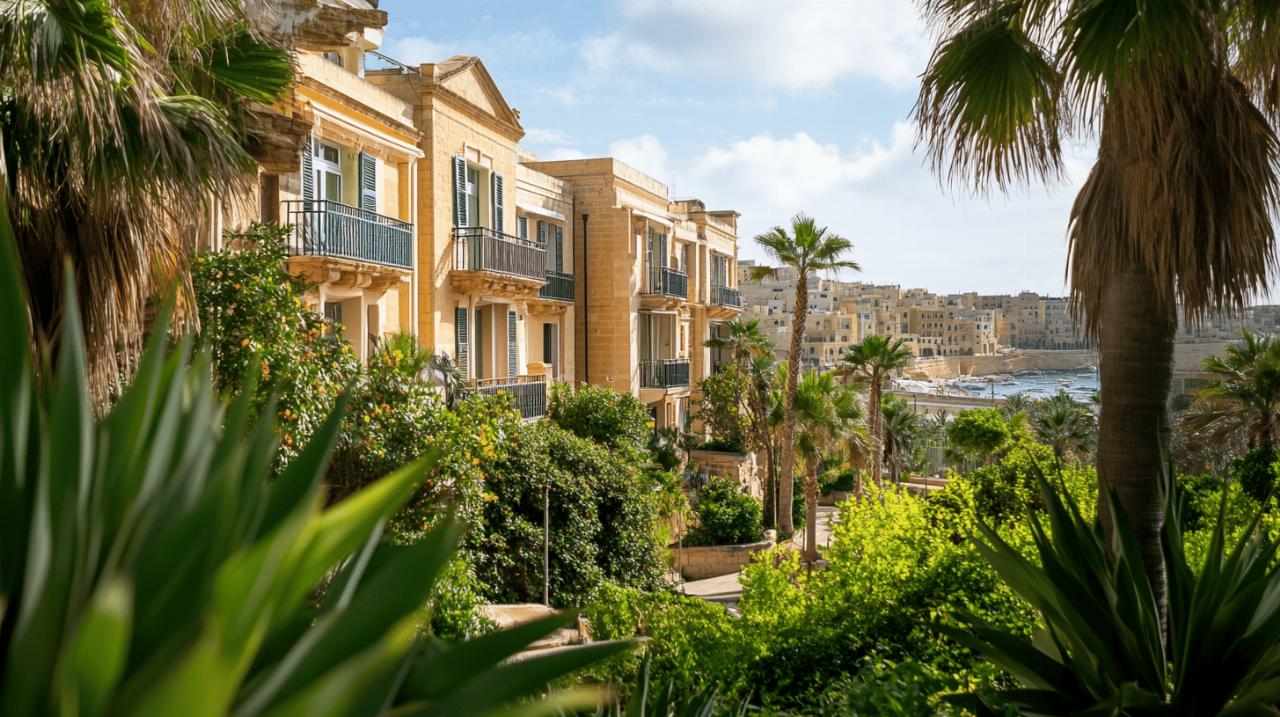Retirement homes in Malta have evolved to meet the diverse dietary needs of their residents, offering a comprehensive approach that blends nutrition with cultural sensitivity and personalised care. From managing health-related restrictions to celebrating culinary traditions, these facilities are increasingly focused on making mealtimes both nourishing and enjoyable for elderly residents.
Culinary accommodations in maltese retirement homes
Maltese care homes have developed sophisticated systems to accommodate various dietary requirements among their resident population. With research indicating that up to 30% of care home residents are at risk of malnutrition, these facilities place significant emphasis on proper nutrition as a cornerstone of resident care. The approach goes beyond simply providing food—it encompasses a holistic view of nutrition as vital to overall wellbeing and quality of life.
Tailored meal plans for various health conditions
Retirement homes across Malta recognise that each resident arrives with unique dietary needs based on their medical conditions, personal preferences, and cultural background. For residents with diabetes, meals are carefully balanced with appropriate carbohydrate levels and glycaemic index considerations. Those with dysphagia or swallowing difficulties receive specially prepared foods with modified textures while maintaining nutritional value. Staff members receive comprehensive training on preparing meals that address these varying requirements while ensuring the food remains appetising and visually appealing.
Dietary assessment begins the moment a resident arrives at a Maltese care home. Nutritional evaluations establish baseline needs, identify malnutrition risk, and document specific restrictions or preferences. These assessments form the foundation for personalised meal plans that are regularly reviewed and adjusted according to changing health conditions or weight fluctuations. The careful management of food allergies and intolerances follows strict protocols to prevent adverse reactions while maintaining dietary variety.
Quality Assurance in Food Preparation and Delivery
Maltese retirement facilities maintain rigorous standards in food preparation, with many institutions increasing their food purchasing budgets to incorporate more organic and locally sourced ingredients. This commitment to quality ingredients reflects the growing recognition that food quality directly impacts resident satisfaction and health outcomes. Many care homes display nutritional information, including average energy content in kilocalories and protein content in grams per day, allowing for transparency and informed choices.
Mealtime assistance is provided with careful attention to preserving dignity. Caregivers are trained to offer support without undermining independence, creating a balance that respects each resident's capabilities. Food presentation receives particular attention, with care taken to make meals visually appealing—an important factor in stimulating appetite among elderly residents who might otherwise show reduced interest in eating.
Regional and international cuisine options
The culinary offerings in Maltese retirement homes reflect both the rich local heritage and the increasingly diverse backgrounds of residents. This variety helps ensure that meals are not only nutritionally balanced but also culturally meaningful and enjoyable, addressing both physical and emotional aspects of dining.
Traditional maltese dishes with dietary modifications
Traditional Maltese cuisine, with its Mediterranean influences and emphasis on fresh seafood, vegetables, and olive oil, provides an excellent foundation for healthy eating. Care homes adapt classic dishes like rabbit stew, lampuki pie, and bragioli to meet dietary restrictions without sacrificing authentic flavours. These adaptations might include reducing salt content, substituting ingredients for those with allergies, or modifying textures for residents with swallowing difficulties.
Respect for cultural and religious dietary preferences features prominently in meal planning. Whether accommodating the dietary laws of Jewish residents, halal requirements for Muslim residents, or vegetarian and vegan choices, care homes demonstrate cultural sensitivity through their menu offerings. This respect extends to traditional feast days and religious holidays, where special meals honour these important cultural occasions while still meeting medical dietary restrictions.
Global menu selections for diverse resident preferences
As Malta becomes an increasingly popular expat living destination, retirement homes are expanding their menus to include international options. From British classics to continental European favourites, these diverse offerings help residents from various backgrounds maintain connections to their culinary roots. Rotating menu cycles prevent monotony while providing nutritional variety, with resident feedback mechanisms helping to refine and improve options over time.
The integration of global cuisines also benefits long-term Maltese residents by introducing new flavours and dining experiences. This approach recognises that food serves not merely as sustenance but as a source of pleasure, discovery, and social connection—particularly important considerations in retirement settings where other sensory experiences may be limited.
Nutritional support and consultation services
 Professional nutritional guidance forms the backbone of dietary care in Maltese retirement homes, ensuring that residents receive scientifically sound advice tailored to their individual needs. This expertise is particularly valuable in addressing the complex nutritional challenges that often accompany ageing.
Professional nutritional guidance forms the backbone of dietary care in Maltese retirement homes, ensuring that residents receive scientifically sound advice tailored to their individual needs. This expertise is particularly valuable in addressing the complex nutritional challenges that often accompany ageing.
Professional dietitians and nutritional assessment
Maltese care facilities increasingly employ professional dietitians who work alongside other healthcare professionals such as speech therapists and general practitioners to create comprehensive nutritional care plans. These specialists conduct thorough assessments that consider medical history, medication interactions, and changing nutritional needs with age. The collaborative approach ensures that all aspects of health are considered when developing dietary recommendations.
Dietitians also play a crucial role in educating both residents and staff about nutrition. Training sessions for kitchen staff cover topics such as identifying and addressing malnutrition in elderly populations, with some facilities providing hundreds of hours of specialised training annually. This educational component helps create a culture of nutritional awareness throughout the care home environment.
Personalised dietary monitoring and adjustments
Ongoing monitoring of food and fluid intake allows for timely interventions when nutritional concerns arise. Care staff track eating patterns and weight changes, with protocols in place for responding to decreased appetite or unintentional weight loss. These monitoring systems help identify issues before they develop into serious health problems, allowing for proactive rather than reactive care.
Family involvement in nutritional planning provides additional insights into resident preferences and eating habits. Many care homes actively encourage family members to share information about longstanding food preferences, traditional family recipes, and eating routines. This collaboration between professional staff and families creates a more complete picture of each resident's relationship with food and helps personalise care accordingly.
Special occasions and dining experiences
Maltese retirement homes recognise that dining extends beyond nutrition to encompass social connection, celebration, and quality of life. Special dining events and customised experiences help transform necessary daily activities into meaningful occasions that residents can anticipate and enjoy.
Holiday and cultural celebration menus
Traditional Maltese holidays like Festa, Easter, and Christmas receive special culinary attention in retirement homes, with festive menus that honour cultural traditions while accommodating dietary restrictions. These celebration meals often feature traditional delicacies such as qagħaq tal-għasel (honey rings) or figolli (almond pastries) adapted to meet health requirements without sacrificing the symbolic importance of these foods.
Beyond Maltese traditions, retirement homes also acknowledge the diverse backgrounds of their residents by celebrating international holidays and cultural events through food. These culinary journeys provide not only gustatory pleasure but also opportunities for sharing cultural knowledge and building community among residents from different backgrounds.
Family dining arrangements and private catering options
Many Maltese care facilities offer special arrangements for family dining, allowing residents to share meals with visiting loved ones in private or semi-private settings. These opportunities for family connection around food help maintain important relationships and provide a sense of normalcy and continuity. Some homes even accommodate family recipes or special requests for these occasions, recognising the emotional significance of familiar foods shared with loved ones.
For residents celebrating personal milestones such as birthdays or anniversaries, private catering options allow for customised menus and special dining experiences. These individualised approaches demonstrate respect for resident dignity and autonomy, acknowledging that even within institutional settings, personal celebrations remain important markers of identity and life history.





